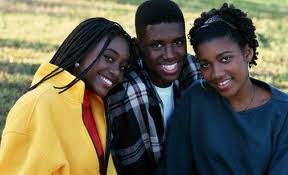Stereotypes Hurt Black-Teen Programs
Share
Explore Our Galleries
Breaking News!
Today's news and culture by Black and other reporters in the Black and mainstream media.
Ways to Support ABHM?
From The Root
New research shows that people might not be inclined to give to organizations that help African-American youths past elementary school age. According to the study, the stereotypes thrust upon black teens may be working overtime to turn off potential donors to the very projects designed to support these young people.
Researchers at the University of Pennsylvania’s Wharton School found that those negative associations attached to black students (lazy, unreliable, dumb and irresponsible, to name a few) kicked in with more force as the students got older, and charitable support for them decreased at the same time.
Learn more about the study and Ron Brown Scholar Program.
When programs have support, they can improve lives.










Comments Are Welcome
Note: We moderate submissions in order to create a space for meaningful dialogue, a space where museum visitors – adults and youth –– can exchange informed, thoughtful, and relevant comments that add value to our exhibits.
Racial slurs, personal attacks, obscenity, profanity, and SHOUTING do not meet the above standard. Such comments are posted in the exhibit Hateful Speech. Commercial promotions, impersonations, and incoherent comments likewise fail to meet our goals, so will not be posted. Submissions longer than 120 words will be shortened.
See our full Comments Policy here.